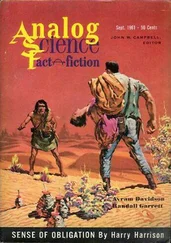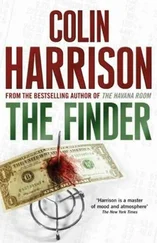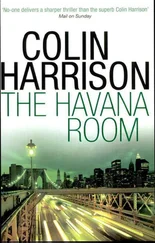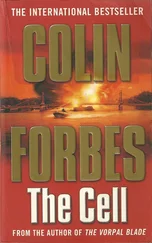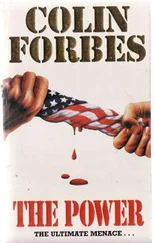Colin Harrison - Afterburn
Здесь есть возможность читать онлайн «Colin Harrison - Afterburn» весь текст электронной книги совершенно бесплатно (целиком полную версию без сокращений). В некоторых случаях можно слушать аудио, скачать через торрент в формате fb2 и присутствует краткое содержание. Жанр: Триллер, на английском языке. Описание произведения, (предисловие) а так же отзывы посетителей доступны на портале библиотеки ЛибКат.
- Название:Afterburn
- Автор:
- Жанр:
- Год:неизвестен
- ISBN:нет данных
- Рейтинг книги:3 / 5. Голосов: 1
-
Избранное:Добавить в избранное
- Отзывы:
-
Ваша оценка:
- 60
- 1
- 2
- 3
- 4
- 5
Afterburn: краткое содержание, описание и аннотация
Предлагаем к чтению аннотацию, описание, краткое содержание или предисловие (зависит от того, что написал сам автор книги «Afterburn»). Если вы не нашли необходимую информацию о книге — напишите в комментариях, мы постараемся отыскать её.
Afterburn — читать онлайн бесплатно полную книгу (весь текст) целиком
Ниже представлен текст книги, разбитый по страницам. Система сохранения места последней прочитанной страницы, позволяет с удобством читать онлайн бесплатно книгу «Afterburn», без необходимости каждый раз заново искать на чём Вы остановились. Поставьте закладку, и сможете в любой момент перейти на страницу, на которой закончили чтение.
Интервал:
Закладка:
"When?"
"Let me just get by this factory stuff and I'll drive down."
"With me or by yourself?"
"We'll see." What he wanted to do, that very moment, was to slide out of the apartment and ease down the street two blocks and sit up at the bar in the Pierre, where the bartender made a damn good gin and tonic using some kind of sweetener and you sometimes saw Henry Kissinger. You sometimes saw a lot of other people, too, and most of them wore very nice dresses. He just liked to sit and watch the action. You ended up talking to a German television producer or a British real-estate man or anyone else with an hour's worth of breath. You forgot that your back had ached for ten thousand straight nights or that your wife was driving on three wheels or that you owed the Bank of Asia fifty-two million dollars in U.S. currency, the interest rate floating at three points above the prime, a sum equal to one tenth of the total capitalization of the company. You forgot that to repay that sum you would have to exploit the labor of eleven thousand semiliterate peasants in four countries, eleven thousand souls who assumed your exploitation of them and craved for it to continue, because it was the best thing going. Well, the company had tried to design humane living conditions in the dormitory next to the new factory. He needed to check on its progress, he reminded himself, he needed to sit quietly and think about the company. He could take a couple of months' worth of sales reports and raw-materials cost projections and sit at the Pierre's bar and pick through the data. You had to keep on top of the flickering indicators that the market was pressured by demand or the lack of it, rising costs or falling margins. The company's sales reps were reporting that customers were saying that Manila Telecom's salespeople were promising new products, faster manufacturing times. Maybe you forgot that, too.
But if he left now, Ellie would only become more irritated. He watched her go into the bedroom and followed her. She sat heavily on the bed, a huge one she'd had shipped from Tuscany ten years back. If I didn't know better, he thought, I'd say she is cracking up a bit. She took one of the photos of Ben off her nightstand and studied it, eyes blinking, mouth slack. There's no safety in the world, he thought, never. She'd made Ben inside of her and he'd died. End of story. She wants a safe place for herself and for her husband, and who could blame her? Trying to set up the last leg home, so to speak, and if he were a decent man, a kind man, he'd appreciate Ellie for this act of love and foresight. Instead, he felt only fear and bitterness and resentment. So here she was looking at the photo of their dead son, asking herself the unanswerable.
After Ben died, she'd lost weight and for a time started smoking again. Meanwhile, Charlie buried himself in work, trying to get Teknetrix into the design sequence of some of the large telecom manufacturers, trying to spec into their products. Chasing success to flee grief. In that year after Ben's death he'd flown almost constantly, mostly to Asia and Silicon Valley, meeting other executives, making bids, taking bids, buying dinner for everyone, ordering cars to the airport, from the airport, wake-up call at 5:00 a.m., please, I'm here today to show you what Teknetrix can do within your cost structure, that's one hell of a nice putt, ours is faster, we can engineer that ten percent smaller. The whole cha-cha-cha. A bad time in the economy, the mid-eighties, but he'd hoped that if he could just get the orders moving for Teknetrix, then eventually the company would climb the vertical face of market share. A hundred sales calls, a thousand cups of coffee, a hundred thousand miles of flying: ten large orders. They bought a smaller competitor, they hired better engineers, they scored four design wins in two months in 1985. All after Ben's death. All because Charlie went on the road. If Ben had lived, Teknetrix might have died, but because Ben perished, Teknetrix boomed, from eighty million in sales to two hundred million in three years, including the strategic acquisition. Eleven hundred employees to three thousand to nine thousand. An amazing leap. The great irony was that Charlie would have showered that prosperity down upon Ben, sent him to any graduate school in the world, helped him get married or start off on the right foot. Anything for his Ben. And now all they had were some photographs and the things in Ben's closet that Ellie could not bring herself to throw away. His high-school letter jacket, his basketball, now gone soft. He wondered if these things would also find their way down to Vista del Muerte. Probably. He'd ask Ellie to put Ben's stuff where he was unlikely to run into it. She could build a special little walk-in closet, if she wanted, a shrine. She was like that, Ellie. Needed to hang on to the relics. Still had Julia's baby teeth somewhere and pieces of hair and tiny wool mittens and Ben's soccer shoes and Julia's retainer from after she got her braces off. It was more than sentimental, it was superstitious. Primitive. He understood the impulse and it scared the hell out of him. For if you were attached to this thing and that thing, then why not everything, why not grab every last fucking fragment of life's passage? But of course you could not. Ellie had held tight to life from the very first, perhaps because she'd lost her parents early. The death of Ben had confirmed her worst fears about the unbearable nature of time and being; suffering arrived in every life, and the only question was whether you understood this sooner or later. He'd often wondered if she'd had an affair when he was in Vietnam, or while he was MIA, out of worry or grief, but her devotion to him when he returned convinced him that he didn't need to ask. If she had done so, then so be it. It was some piece of another man's flesh in her for a few minutes. Maybe it made her happy. He could take that, he really could. In the great flow of things, not such a big deal really. They'd made children together, and that was the singular fact of their union, that was the thing that bound them forever and ever, amen. And anyway, Ellie could live with the truth that for three years he'd killed human beings for a living. If two people's miseries do not overlap, then why should their happinesses?
But although she knew, roughly, what had happened to him as a prisoner, he'd never told her everything about it. Not about the ropes and not about the rice sacks filled with stones. How do you explain torture? Where your mind went? How you hated them but also yourself for what was being done to you? He'd told the psychiatrists at the base hospital enough anyway; they pumped it out of you before you could poison your family. Some guys even required sodium pentathol. Say it, say what happened. Tell us, young fellow. We know you need to talk about it. But they didn't want you to talk to anyone else about it. Don't tell the newspaper reporters, don't discuss it with other active pilots, try not to tell your wife too much. It was fucking political. But he'd done his best to comply. And even then, the Air Force kept him in the hospital for nine weeks, controlled access to him. No photographs, except for internal medical research purposes, no visits from family members until after his bones had been reset, tendons reattached, after he had been tube-nourished, dewormed, stepped down from the morphine, had his broken teeth fixed. In that time they got thirty pounds back on him. Shave, haircut, trimmed fingernails, new uniform, nice crutches, fifty pills a day, back brace. Then, and only then, had Ellie been allowed to see him. Greatest moment in his life, when he hugged her, felt the kids rush against his legs. As for what had happened, she'd asked, of course, begged him to tell her so that she could understand his long silences. But he'd decided talking would make it bigger, not smaller. Would pervert the perversion, lay language on it, never to be removed. She meant well, she was willing to listen, but finally the experience had been his, not hers. He wanted to get on with the raising of the children, the pursuit of the future. And so they'd never really talked about it, and in the shared history of their lives, his POW experience had become, all these years later, just an anomaly, a strange dark patch sewn into a familiar bright fabric. Moreover, the death of Ben had changed everything, recalibrated their notion of suffering. There was simply life before Ben died and after. In the subsequent years they had become so prosperous, the value of Teknetrix's stock rising so high, that it was as if their faith in the endurance of grief was being tested. Once their wealth reached a critical mass, say ten million, it burgeoned and proliferated, rooting itself and spreading, blooming in the long bull market of the nineties. Ellie would say to him sometimes, "We have so much money and it really doesn't-I mean, I like to see shows and I like our apartment, but you know I-" And then she'd stop and her blue eyes would fill and he'd nod sadly and they both would know that there was nothing they could do. Their boy was gone. Sometimes on those evenings Charlie would feel a strange strength to his erection, getting almost as stiff as he did when he was younger, and their fucking beneath the covers became an erotic communion of grief. Ellie would go back and forth between orgasms and weeping, several times, though his own final spasm contained little that was celebratory or even cathartic to it; he would just give in to necessity. Even as they held their pleasure close to themselves, they knew it was fleeting, they knew that it would only later deliver them into sadness, and that year by year they were losing hold on the things they wanted most. Ellie in these times would wrap her legs around him and beg him please to fuck her so that she could just forget everything, everything except that she was alive, and he would try not to feel his back and do his damnedest and sometimes, rarely, it would work, but usually not. When it did, she cried out and he'd bow his head and feel glad for her yet also aware that he was incapable of such deliverance. It's different if you have killed people, it's different because, although you can suffer the death of people you love, you know that you've caused that same grief in innumerable others, and the weight of that is always there, pulls at you like a stone. It didn't matter that he'd done it for his country. It didn't matter that the war was unnecessary. If he had only known then what he knew now. But that was true of everybody. He had gone to war because he'd loved to fly, and although he had been very good at understanding technical procedures and air combat strategy and the argument that he was protecting democracy and all the other monkey-brain complexity the Air Force filled you with, he had not understood time. Not understood that his actions weren't discrete and perishable but that they would become part of him, forever. He would carry them. You carry your own water around here, his father always said, and he was right. There was nothing he could do now about what he had done then.
Читать дальшеИнтервал:
Закладка:
Похожие книги на «Afterburn»
Представляем Вашему вниманию похожие книги на «Afterburn» списком для выбора. Мы отобрали схожую по названию и смыслу литературу в надежде предоставить читателям больше вариантов отыскать новые, интересные, ещё непрочитанные произведения.
Обсуждение, отзывы о книге «Afterburn» и просто собственные мнения читателей. Оставьте ваши комментарии, напишите, что Вы думаете о произведении, его смысле или главных героях. Укажите что конкретно понравилось, а что нет, и почему Вы так считаете.

